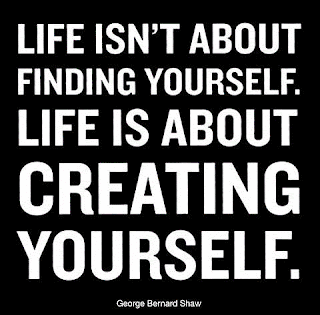How does science affect our everyday lives?
We listed some of the different scientific fields that seem to make an impact on one's everyday life. To name a few:
> Astronomy
> Chemistry
> Physics
> Metaphysics
> Psychology
> Meteorology
We also said that science ought to glorify God.
A few years ago, during a long speech about health policy, President George W. Bush spoke about a society increasingly empowered by science. He warned:
"The powers of science are morally neutral - as easily used for bad purposes as good ones. In the excitement of discovery, we must never forget that mankind is defined not by intelligence alone, but by conscience. Even the most noble ends do not justify every means."
The president implied that science only provides tools that give us raw power and it is up to us to determine the right ways to use that power and to proscribe the wrong ways.
The notion that science is morally neutral is widely held by scientists. Many wear this as a badge of honour, presenting themselves as disinterested servants of truth. They supply society with facts and tools and its up to others how to use them.
Do you agree or disagree?
Our philosopher this week was Francis Bacon.
He was an English philosopher, statesman, scientist, jurist, orator, and author. He has been called the creator of empiricism and his works established and popularized inductive methodologies for scientific inquiry, often called the Baconian method, or simply the scientific method. He was knighted in 1603 and died in 1626 by contracting pneumonia while studying the effects of freezing meat. He was also a friend of Thomas Hobbes, one of the other philosophers we have studied.
Finally, he said that anything can be made evil in the hands of evil men.
I
would argue that this is not the most essential moral challenge posed for us by
modern science.
Modern
science is much more than a source of technology and scientists are far more
than mere investigators and toolmakers.
Modern science is a grand human endeavour. Its work employs the best and brightest from
all over the world and its way of thinking has come to dominate the way
mankind understands itself and its place.
The
modern scientific project was not conceived or born as a morally neutral quest
after facts. On the contrary, launched
in the 17th century, it was a profoundly moral enterprise, aimed at improving
the condition of the human race, relieving suffering, enhancing health and
enriching life.
Francis
Bacon argued that a search for knowledge driving solely by a natural curiosity
would be misguided and inadequate. He
said that the true aim of a genuine science should be "the glory of the
Creator and the relief of man's estate".
We concluded with a discussion of the book The Strange Case of Dr. Jekyll and Mr. Hyde by Robert Louis Stevenson.


















